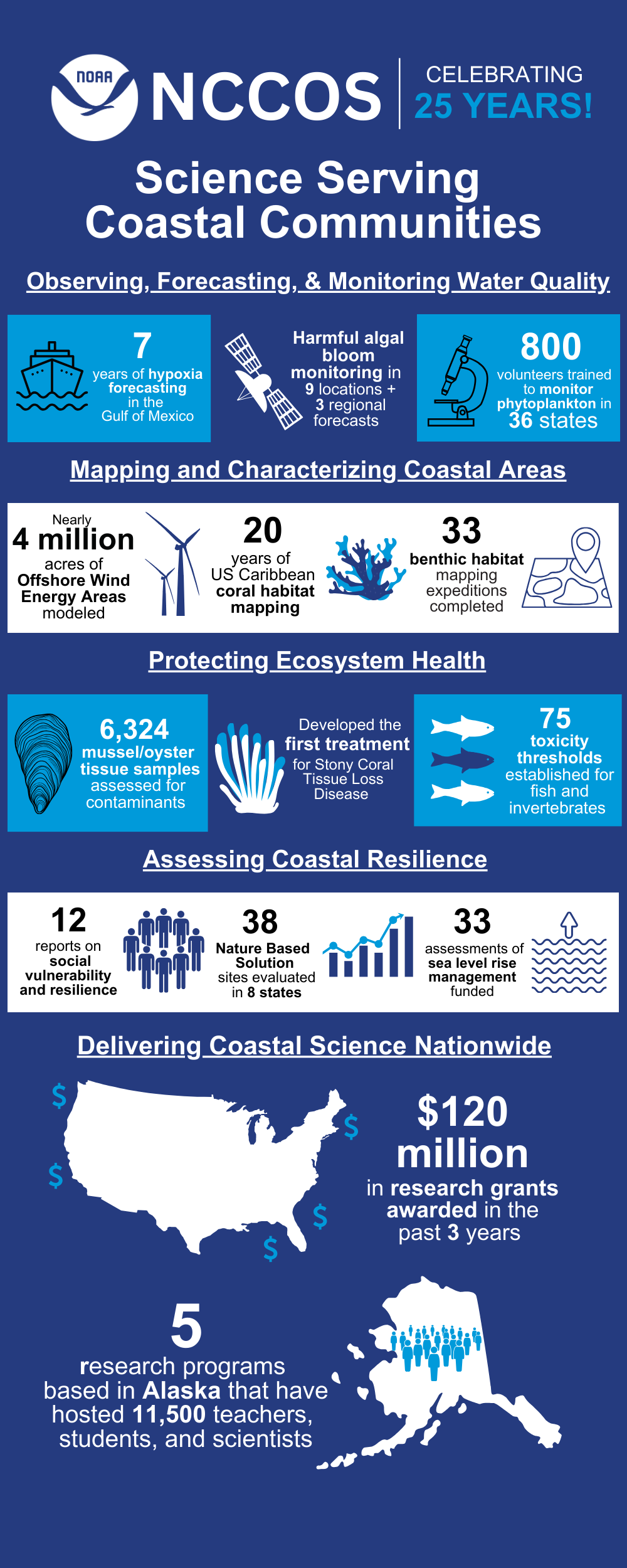
The National Centers for Coastal Ocean Science (NCCOS) was founded in 1999 to support NOAA’s scientific mission and coastal mandates. This year, NCCOS is proud to celebrate 25 years of delivering high-quality science to coastal communities and its federal, state, academic, and public partners. We invite you to join us in looking back at #25YearsofNCCOS across our social media platforms in the coming months.
Nearly 40 percent of the U.S. population (about 127 million people) live in coastal communities. These communities generate $10 trillion in economic activity while employing 55 million people. Research conducted and funded by NCCOS and its partners is dedicated to serving these coastal communities and their businesses. Work at NCCOS capitalizes on NOAA’s research, monitoring, assessment, and technical assistance capabilities to address environmental problems, build partnerships among coastal programs, and strengthen the scientific basis underlying coastal management throughout the Nation.
NCCOS owns and operates four federal research laboratory campuses in Beaufort, NC; Charleston, SC; Oxford, MD; and Kasitsna Bay, AK, in addition to offices at NOAA Headquarters in Silver Spring, MD. NCCOS uses a dual model for science delivery to coastal managers and communities: internal science capacity is complemented by competitive external funding programs. NCCOS’ two major internal research divisions are the Stressor Detection & Impacts Division and the Marine Spatial Ecology Division. Externally, NCCOS runs a nationwide competitive research extramural grant program and administers the RESTORE science program, which was established after the Deepwater Horizon oil spill to carry out research, observation, and monitoring in the Gulf of Mexico. The combination of internal research and external research funding anchors NCCOS as a premier program focusing on issues relevant to coastal communities, including monitoring ecosystem health, mapping and characterizing coastal areas, observing, forecasting, and monitoring water quality, as well as assessing coastal resilience.
While NCCOS’ science and research priorities have shifted to fit the changing needs of coastal communities, our mission of serving coastal communities remains steadfast.
